Twin Peaks, and How To Enjoy It
A guide to falling in love with the strange works of David Lynch
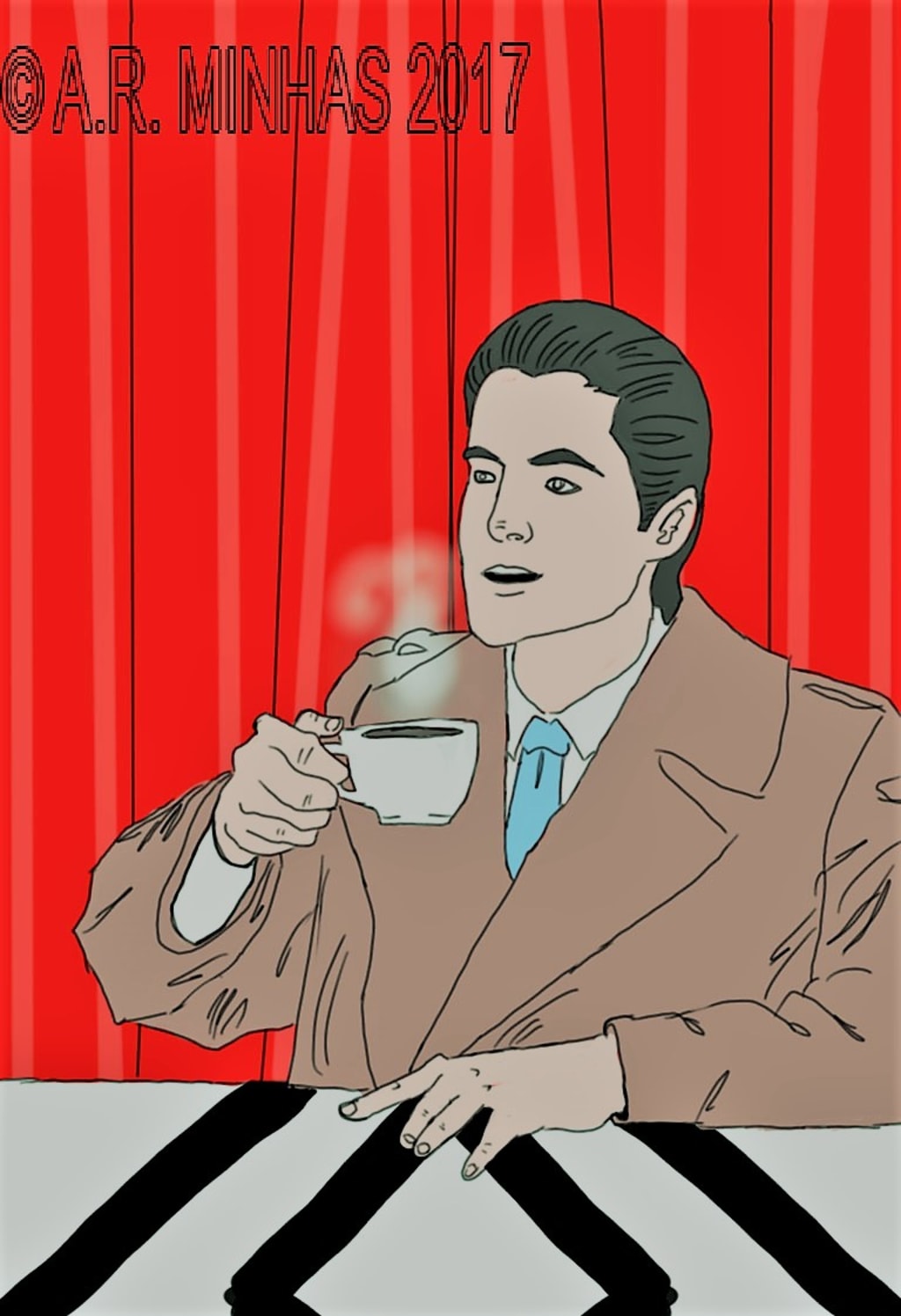
Twin Peaks Season 3 is now in progress, and so far the show has been getting a lot of mixed reception. The criticism has been mostly focused on the show’s pacing which has been very, very slow; unlike the original series, there has been a lack of humor and the general genre-bending that the show usually employs. The show, so far, isn’t providing the audience with any real form of exposition, and the plot is incoherent, at best. However, I think the real reason the show has gotten the reaction it has, is because everything feels different, maybe even unfamiliar.
Ever since its airing, I feel like "we're not in Kansas (Twin Peaks) anymore." It’s almost like a different show. These aren’t the same characters we watched in the original series; the tone of the show is different, and the surreal aspect has completely taken over. However, in hindsight, I think the most important difference that this season has is—us—the viewers; we are also different.
Let me explain: we as viewers are living in the golden age of TV, have certain expectations that shows have to fulfill. Lovable characters, intricate plot-lines, cohesive subplots, will-they-won’t-they love affairs, being shocked by a turn of events and finally being offered some catharsis. To be fair, those expectations are universal when it comes to critiquing or even enjoying any form of art. However, today's viewer is over-saturated with TV shows that follow a particular formula, so much so, that it allows us to enjoy it, but we can almost guess what's going to happen next.
But why do viewer expectations matter? The obvious answer is that if you don’t meet the expectations, no one will watch the show. And that brings us to David Lynch, the enigmatic and surreal director who has been in film for over forty years and has created Twin Peaks, along with, Mark Frost. I believe with the new season of Twin Peaks he’s changing TV shows, once again, and he's going to be doing that by changing viewer’s expectations, our expectations. I think to enjoy this new iteration of Twin Peaks; we have to recalibrate how we evaluate TV-shows in general.
Strange Dreams
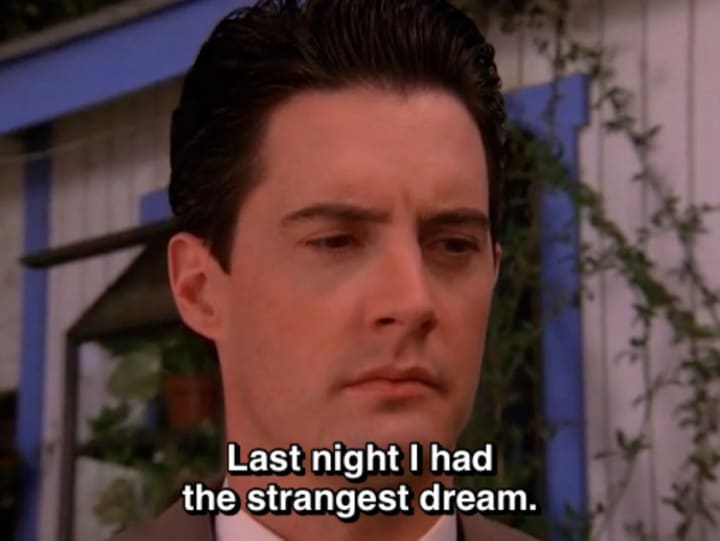
Image from Rebloggy
David Lynch's Head is Elsewhere
There is something off-centre about David Lynch. His movies are one thing; but if you read his book, Catching the Big Fish: Meditation, Consciousness, and Creativity, you’ll get to know someone who has a child-like enthusiasm, a strange obsession with wood, and a deep-seated belief in the powers of Transcendental Meditation (Lynch 2016).
What, however, is missing in his book is any skeleton-key or guide to explain his movies. He refuses to ponder or offer any information. And that is the best thing he can do for us.
To me, artists shouldn't provide any hints as in understanding their work as it sounds pretentious, and perhaps, worse, pedagogic. I don't think artists should have any other agendas other than making people think and expanding the collective consciousness.
By explaining it too much, the viewer is robbed from making their own interpretations about what they've seen. It closes the room for discussion and makes it easy for any work to be digested and eventually forgotten. David Lynch rather wants to make you experience it; in Wallace’s essay on David Lynch he understands that he doesn't have a point and his work needs to be experienced, rather than interpreted (Wallace, 1997, pg 170).
When you watch anything made by David Lynch you're going to be transported by the experience of watching it: the unsettling sounds, the colorful atmosphere, discursive conversations, and inexplicable behavior and/or events. There is no pretension here, and certainly no pedagogy.
However, if you experience Lynch's vision for the first time—it will be disorienting. It will be uncomfortable, and some might puke yellow-green stuff.
What you always have to remember is that there is a certain way, you can enjoy his work. You mustn't think about what's happening at that very moment. To understand Lynch, you have to go with it—accept things will get weird. Very, very weird.
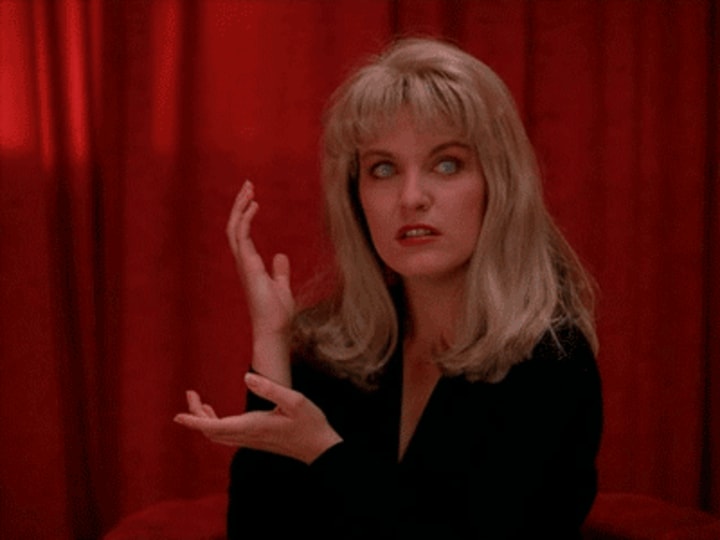
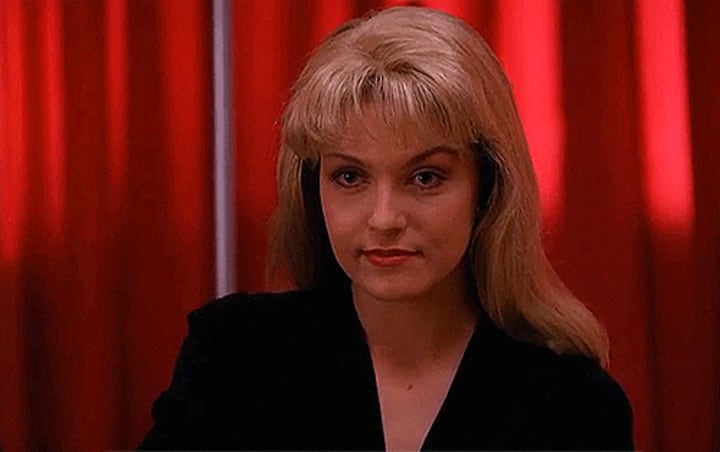
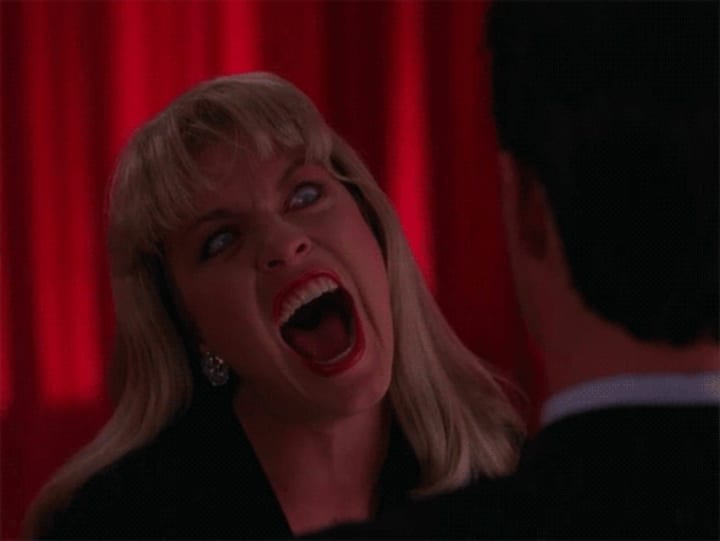
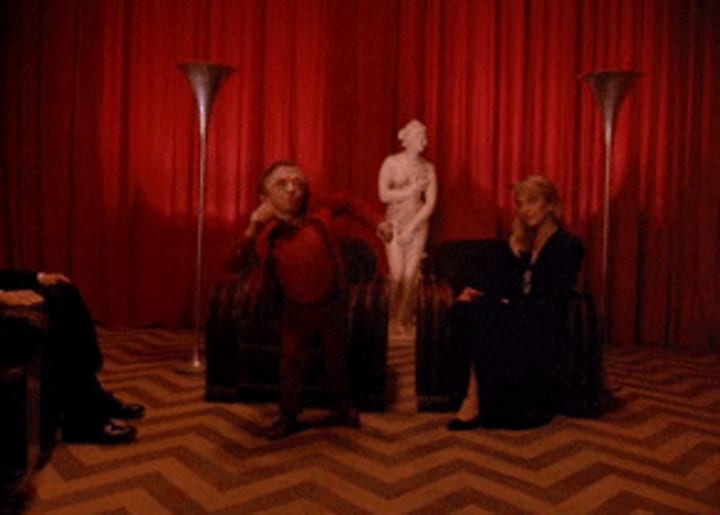
Embracing the Weirdness
Let's face it—life is weird. Think about when you're experiencing Déjà Vu, why do we feel like we’ve seen it before? Why is it that if you discuss a particular word, you suddenly see or hear it all around you, happening in real-time?
There was a weird instance that happened to me when I was about 11; I was sitting at the table, with my family, and I made a joke. I don't remember what the joke was, exactly, but what I do recall was that I was half-expecting a laugh track playing in the background. After I had delivered the joke—nothing happened, of course, but the thought of some gaggle of laughter emitting from somewhere would be troubling, I mean if that actually happened would that mean I’m stuck in an alternate dimension? Or is my life just a show?
There was a realization of a different reality, and what is real is relative. This question interested me because I understood that there is some difference between the lives we lead to the TV-shows we watch, or even the dreams we experience, which is very obvious, of course. There is an incongruity in how life is, and how it's portrayed. The reason Lynch’s work stands out is that, yes, it’s surreal, but it’s also hyper aware of the idiosyncratic nature of our existence and our daily struggles.
Ever had an awkward handshake? Or a conversation about out-of-body experiences with a stranger in an elevator? If you've experienced anything that shatters your perception of the world, or how it should work, you will rationalize it—but it will create conflict. Think of Jeffrey (also played by Kyle McLachlan) from Blue Velvet, who can’t come to terms with finding a dismembered ear left in a field. He is living in a small town, and something that out of the ordinary shatters his perception of this daily existence. Jeffrey, in an attempt to rationalize this, plunges into the darker recesses of his hometown, populated by a raven-haired mistress, Dorothy, (Isabella Rossellini) with a dark past and a human embodiment of the ID in Frank (Dennis Hopper) (Lee, 2011, pg. 51). He falls down the rabbit-hole by trying to make sense of the chaos. Similarly, you can say the same of Dale Cooper, who has to deal with Laura Palmer’s murder, which shouldn’t be out of the ordinary for someone like Cooper, who is, after all an FBI Agent. What is weird are the circumstances surrounding her death, which lead to his descent into the darker aspects of the town, and eventually finding himself surrounded by supernatural elements.
Lynch creates conflict in his characters on their need to rationalize everything. Characters, like us, are trying to make sense of the world. They are looking for the truth; however, the trick is that the underlying truth isn’t important at all. It’s the journey that is weird. Even if the journey doesn’t make sense, they need to travel; some things need to be experienced because rationality has its limits. Eventually, rationality runs out, and the world is left with no explanations, where mysteries are relegated to pseudo-science, and the wonderment of existence has diminished.
To enjoy you must let go of rationalizing it—just say "yes!" and be amazed by how weird our existence is, which if you think about it, relative to nature, is quite strange already. The biggest point here is that instead of using conventional story-telling methods employed by other TV-shows; Lynch uses imagery, themes, motifs, sound, and the setting for meaning, and makes the characters need for ordering the chaos a source of endless weirdness. The trick to liking this season is to view it separately from the original series: where the plot was almost a distraction, this time it is.
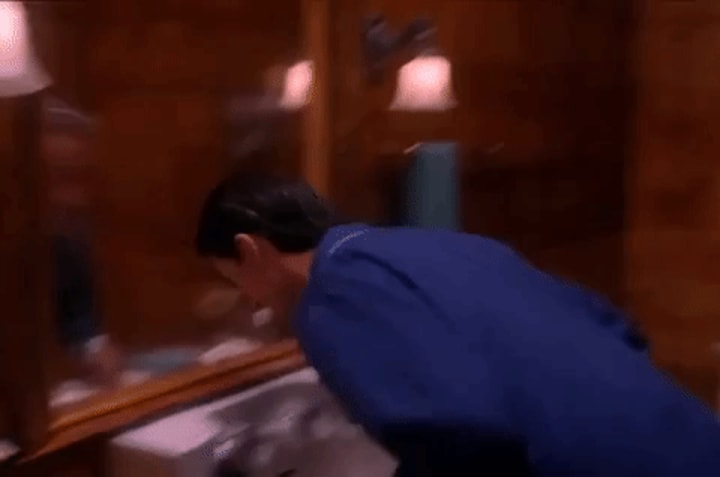
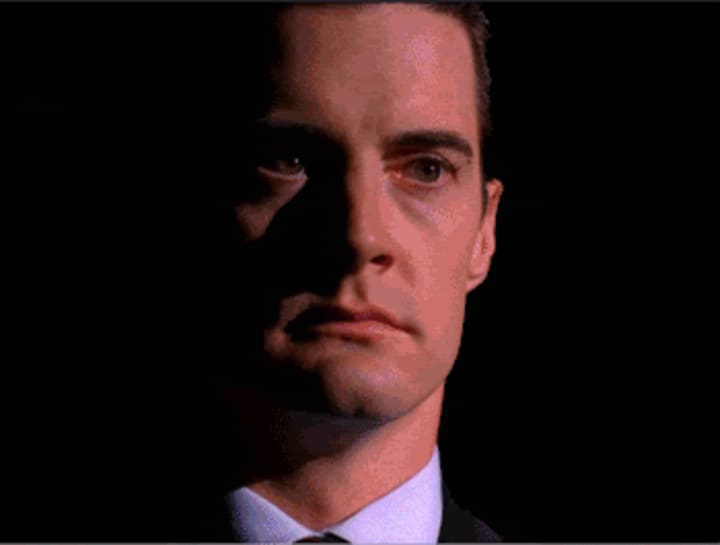
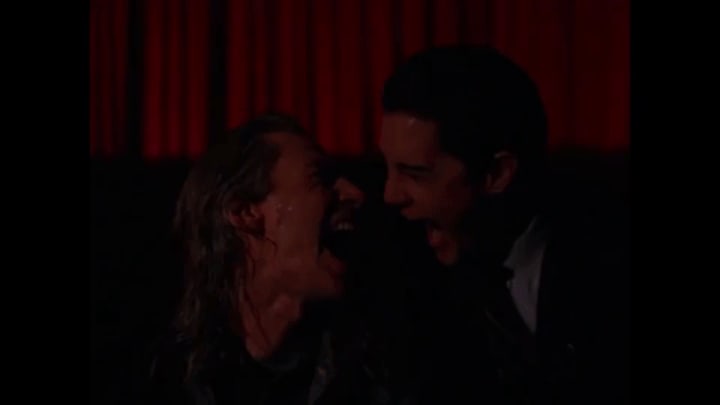
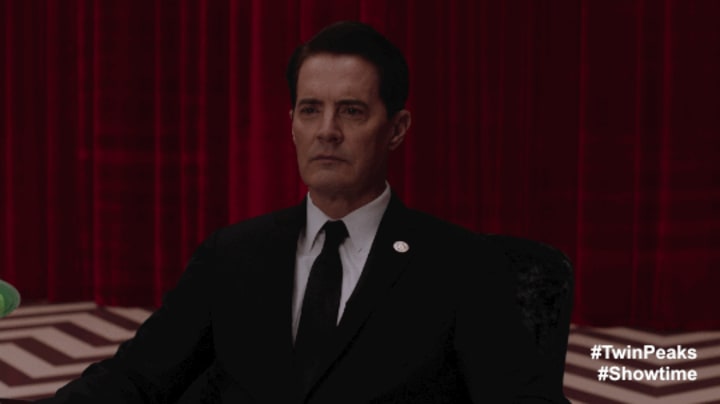
The New Season Of Twin Peaks
As of this writing, I have seen seven episodes of the new season. I have to admit that getting into the show; I’ve had to re-watch a couple of the episodes and remind myself that the themes are much more important than the actual story. The season to me embraces one of the most recurring themes in Lynch’s work which is identity. I’m going to be talking about the show at lengths, so spoilers (although they don’t really matter) ahead.
When we last left the show, Agent Dale Cooper was stuck in the red room or the black lodge, and the closing shot is of BOB taking possession of Cooper’s body in the waking world, reflected in the mirror. Now as the show has progressed we have seen the characters change, merge, or even just disintegrate. For example, let’s take a look at BOB Cooper; he’s still a grade-A sociopath, but there is also a kind of suaveness that he’s developed. He no longer just relies on brute strength to get his way, he’s developed a cunningness that we’ve not seen before, we can see it in the way he uses "Mr. Strawberry" to blackmail the warden to release him.
Think of DOUGIE Cooper, the real Dale Cooper, trapped in suburbia— where his actions are subject to scrutiny from his wife, Janey-E (Naomi Watts, who is doing a fabulous job by the way), his job, the hitmen, the casino bosses, and Law Enforcement. DOUGIE is a far cry from the Dale Cooper we all know and love: free-spirited, quirky, slightly eccentric and always eager. Instead, he’s an automaton going through the motions, being a passenger in life and repeating things back to people. However, DOUGIE Cooper still retains sparks of what makes him, him. DOUGIE recognizes when Tommy is lying when a green light shines on his face, very much like how Dale Cooper, could always tell if someone was lying; he sees a gold sparkle that guides him to mark the case files in a certain way and of course the way he tackles Icke "the spike." There are flashes of who he is brimming on the surface. He is the same person, only different.
It’s pretty obvious that the prolonged exposure to their settings have fundamentally changed them: BOB has adapted to the real world, but you can see the pure maliciousness he still drips. And Dale Cooper, who was stuck dealing with people talking backward and making scary faces at him for over 25 years; in his stupor state, still has flashes of Dale Cooper-ness.
Richard Horne: From Badass to Sleazebag
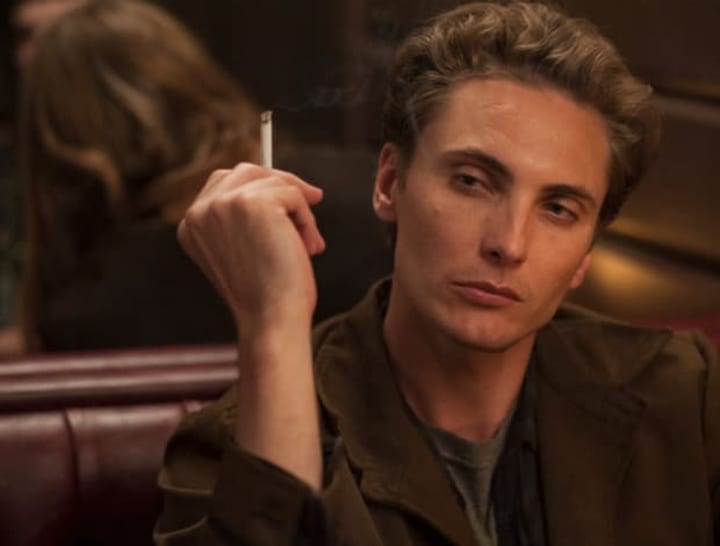
Image from CBS
I think the perfect embodiment of the shifting nature of personality is in the 5th episode of the show when we are first introduced to Richard Horne. He’s the guy sitting at the Roadhouse, smoking, right next to the "No Smoking" sign. He looks like a total badass; it’s like a throwback from some other era. The owner tells him to put it out, and he dismisses him, further cementing ours and a group of girls, who are observing him in the front booth, perception, as a bad boy. He is dripping with coolness, and we are intrigued. One of the girls, who is sitting in the front, is drawn in and flirts. He engages. She sits next to him—and he grabs her screaming. We don’t think of him as a bad-ass anymore. He has become a sleazebag.
This is what Lynch does, subverting and changing the identity of his characters to shine a new light on what we perceive and turning our expectations on their heads. I’m sure there are other examples, but with Lynch, there is always a lot to unpack.
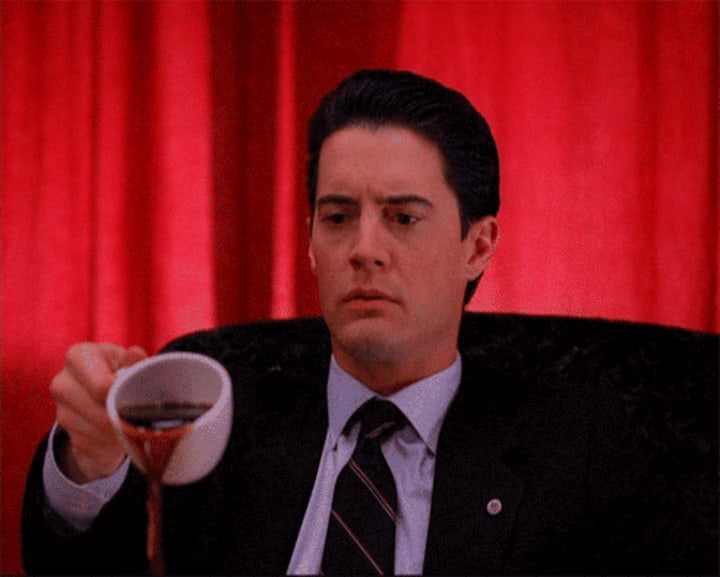
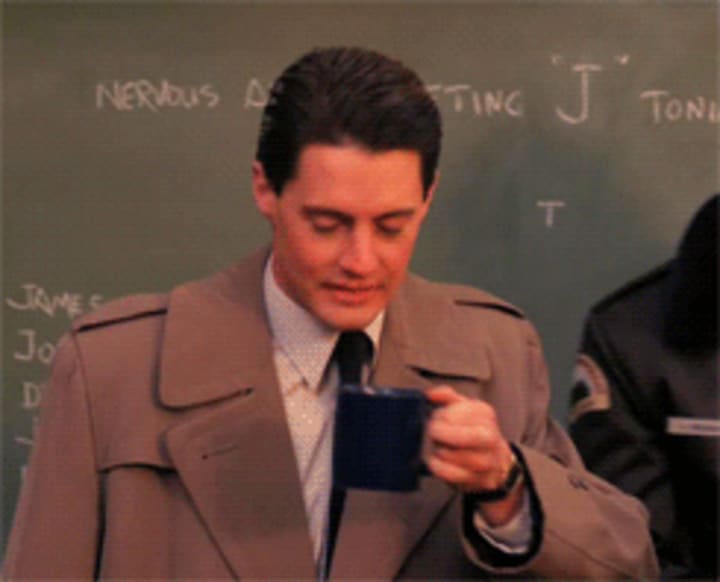
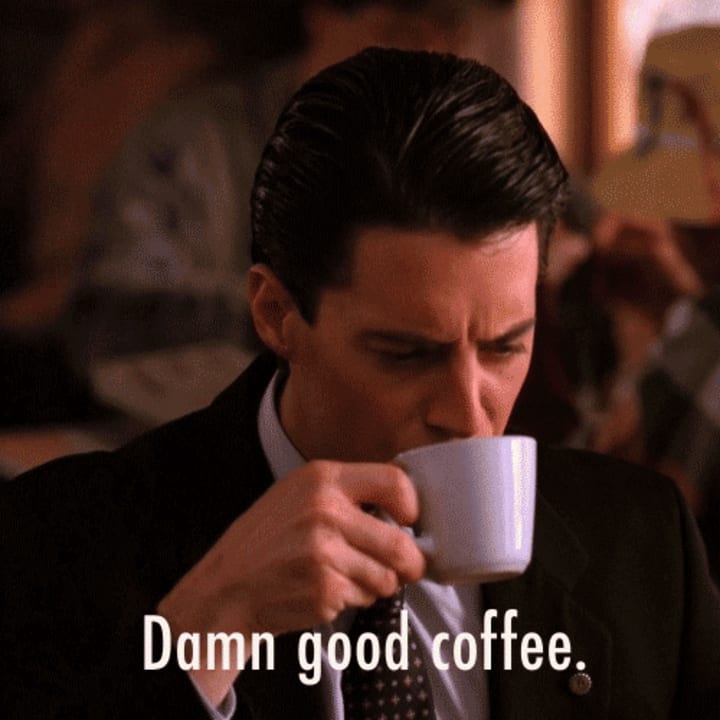
Damn Fine Cup of Cofee!
I love the world that David Lynch and Mark Frost have created. Twin Peaks is one of the quirkiest, most original shows I’ve ever seen. To me, I can’t even imagine how this show originally aired on TV. In David Lim’s book, David Lynch: The Man from Another Place, he mentions that ABC wanted to take a chance as they were in the third place, but the show was too weird for the executives to do any tinkering (Lim, 2015, p. 90).
The original always had elements of Lynch’s vision. With the new season recently we see an absolute, unadulterated, Lynchian vision of Twin Peaks. The impact of this show can't be understated. This show, in my opinion, was the precursor, and in many ways planted the seeds, which have to lead the golden age of TV that we’re experiencing right now. Countless shows owe a debt to Twin Peaks, and rabid cult following is well-deserved.
I hope this article will make you re-evaluate how you watch the show and perhaps gives you a greater appreciation of what Lynch does on-screen and off-screen. And as always I hope there is a damn, fine cup of coffee awaiting you in your future!
Notes
1) Lynch, David (2016). Catching the big fish: meditation, consciousness, and creativity. Hudson, NY: Tarcherperigee.
2) Lee, Sander H. (2011). The horrors of Life’s Hidden Mysteries: Blue Velvet. In William J. Devlin and Shai (Ed.), The philosophy of David Lynch (pp. 45 – 60). Lexington, Kentucky: University Press of Kentucky.
3) Wallace, David Foster (1997). “David Lynch keeps his head.” A supposedly fun thing I’ll never do again: essays and arguments. (pp. 145 – 212). New York, NY: Back Bay Back Bay Books/Little, Brown and Company.
4) Lim, Dennis (2015). The Man from Another Place. US: Houghton Mifflin Harcourt.
About the Creator
A.R. Minhas
Self-published author of 'June is Dreaming'. Voracious reader. Watcher of weird entertainment.
Website: https://arminhas.com/
Twitter: https://twitter.com/arminhas
Artwork on Redbubble.
h
Private queries: [email protected].

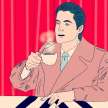
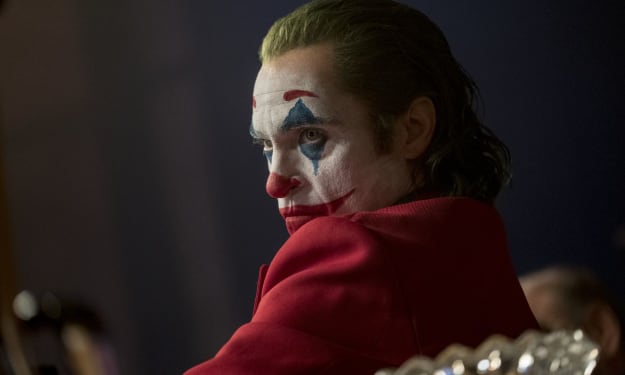



Comments
There are no comments for this story
Be the first to respond and start the conversation.